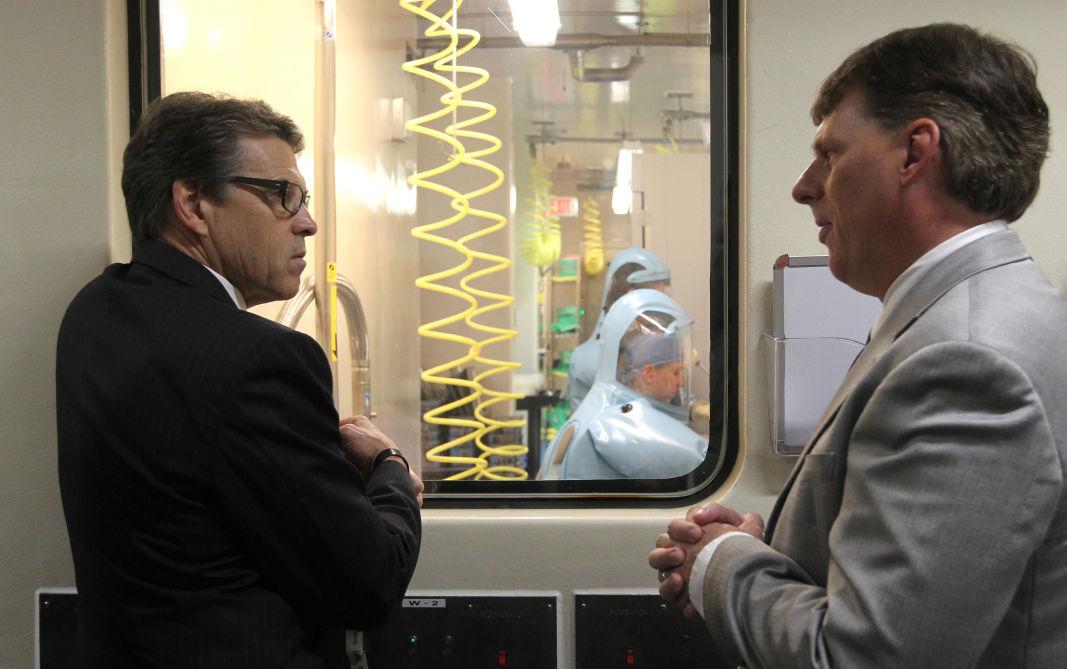I remember being held home from school by illness as a child. Even if what I had wasn’t particularly contagious, my parents still felt it prudent to isolate me until whatever was ailing me passed. It was just common sense.
With the recent outbreak of Ebola, the same measures ought to be taken but on a much larger scale. Commercial and passenger air travel out of West Africa with high cases of infection should be banned until the outbreak has passed.
As of Oct. 3, the Centers for Disease Control confirmed at least 4,108 cases of Ebola hemorrhagic fever with 3,439 total deaths. On Sept. 30, the U.S. welcomed its first confirmed case in Liberian national Thomas Eric Duncan, who traveled to Dallas on Sept. 20 and was diagnosed on Sept. 30. Liberia has been hit the worst with the virus, accounting for 2,069 of the total deaths.
Although Ebola is not nearly as contagious as diseases like influenza or SARS, it’s as deadly as the bubonic plague, which killed almost half of Europe. Depending on which strain someone is infected with — there are five — the mortality rate can range from 25 to 90 percent. The Ebola Zaire strain is the one at the apocalyptic end of the spectrum.
The symptoms of Ebola include fun things like internal and external bleeding, fever, fatigue, kidney or liver failure, vomiting and diarrhea. When it’s left to run its course, those who face the Grim Reaper experience what is referred to as “crashing and bleeding out.”
If you think that phrase was cringe-worthy, don’t worry — what actually happens is far more horrifying. When a person crashes and bleeds out, their body sloughs off the lining of their organs, which are at this point liquefied, and they proceed to hemorrhage out of any available orifice.
Yep, this virus literally makes people explode into a pool of blood.
What makes it worse is that by the time that happens, the Ebola converts the body’s cells into virus particles, so that when the sudden blood explosion hits, everything spilling on the floor has the potential to infect everyone around. You don’t have to ingest contaminated fluids or even have it exposed to an open cut to contract Ebola, you just have to touch it, or for the more unfortunate, have them violently spewed on you while you’re regretting the decision to fly coach.
Just think: Someone with this disease got on a plane and landed in the middle of the country. If that alone doesn’t necessitate a flight ban, I don’t know what will.
Granted, modern medicine in the U.S. is just that; modern. Out of every country on the planet, there is no one better suited to handle this sort of thing. We have the best facilities, isolation protocols and a viable treatment for the virus from hell.
However, there will always be someone that slips through the cracks. Duncan’s arrival here is a testament to that fact. No matter how many screenings or doctors performing physicals you have, there is always the risk of an infectious person waltzing onto an airplane and infecting one or two other passengers. That is the makings of a global pandemic.
When the worst-case scenario sounds like it was ripped straight from the Book of Revelations, it may be time to start take preventative measures.
Ryan McGehee is a 21-year-old political science, international studies and history senior from Zachary. You can reach him on twitter @JRyanMcGehee.
Opinion: U.S. should treat Ebola crisis with more urgency
October 8, 2014
Tom Geisbert, right, a professor of Microbiology and Immunology at the University of Texas Medical Branch, explains to Texas Gov. Rick Perry the work researchers are conducting in a Bio Safety Level 4 lab in the Galveston National Laboratory on Tuesday, Oct. 7, 2014. Perry and other state officials toured the national laboratory a day after he created a Task Force on Infectious Disease Preparedness and Response. (AP Photo/The Daily News, Jennifer Reynolds, Pool)
More to Discover








